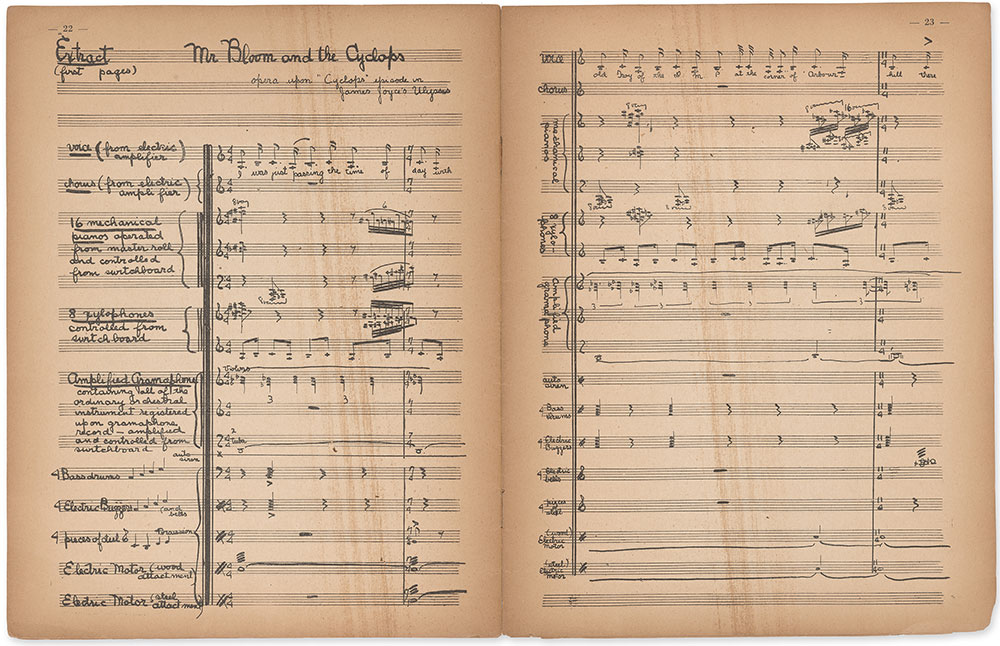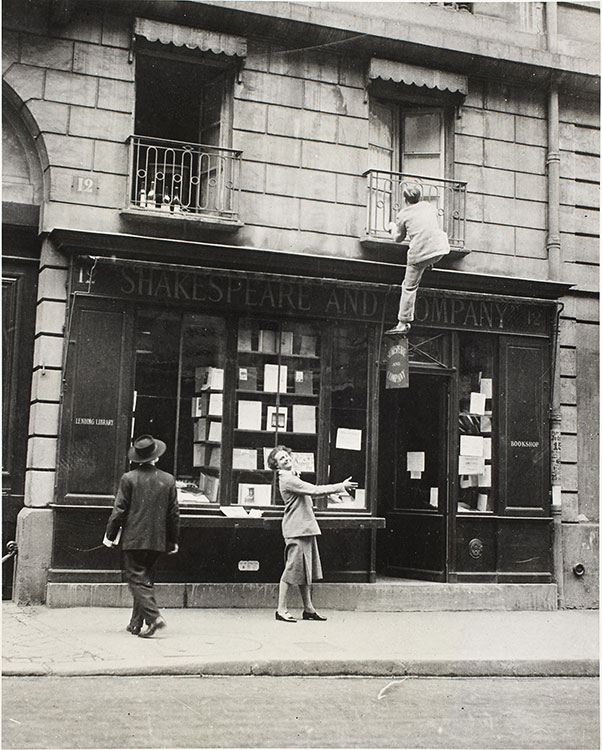In early 1924 the Chicago Tribune heralded a new “electric opera” based on Ulysses by the modern composer George Antheil (1900–1959). The classically-trained New Jersey native was then living in Paris above Shakespeare and Company. Joyce and Nora became fond of the young avant-garde musician. They attended several of Antheil's riotous Paris concerts and remained friends for years. Despite his conservative taste in music, Joyce encouraged Antheil to complete the experimental work based on the "Cyclops" episode, giving him one of the coveted copies of the Ulysses Schema to aid in his endeavor.
Despite the advance publicity, Antheil never finished "Mr Bloom and the Cyclops." Instead, he became famous for the piece he was composing simultaneously: Ballet mécanique, with its player pianos, amplifiers, sirens, and standing fans simulating airplane propellers. As indicated on the fragment of the “Cyclops” score published in 1925, his Ulysses opera was arranged for electric motors, buzzers, amplified voices, gramophones, and sixteen player pianos. Subsequent collaborations between Joyce and Antheil also came to naught, though Antheil later published a musical setting of Joyce's poem "Nightpiece."
George Antheil (1900–1959)
“Mr Bloom and the Cyclops”
This Quarter 1, no. 2, Musical Supplement (October 1925)
The Morgan Library & Museum, gift of Annette de la Renta in memory of Carter Burden, 2005; PML 129675
Unknown Photographer
Sylvia Beach and George Antheil Climbing Up to His Apartment, ca. 1923
Private collection
© Estate of Peter Antheil


